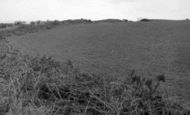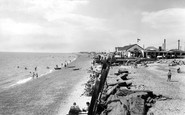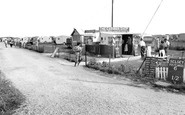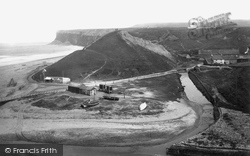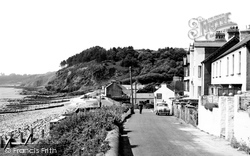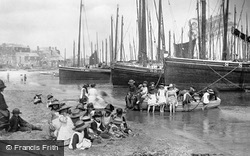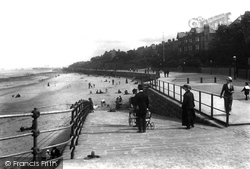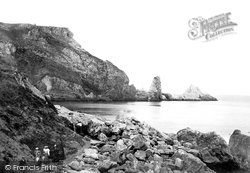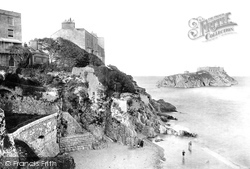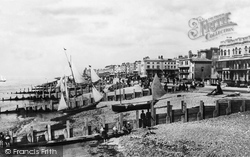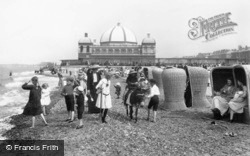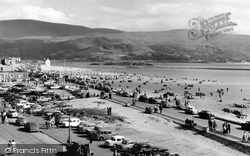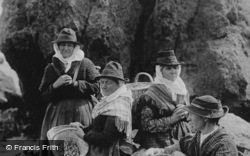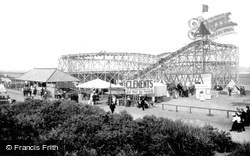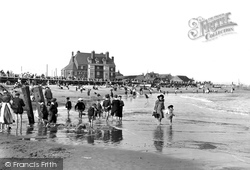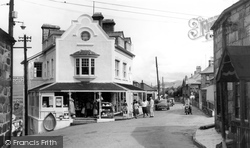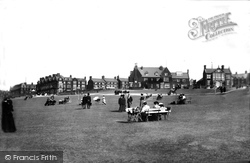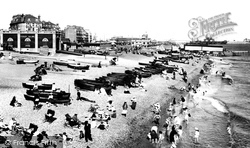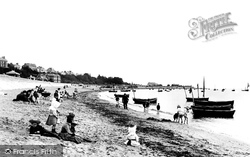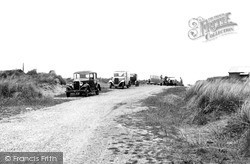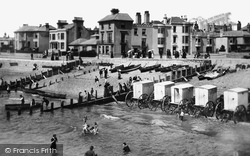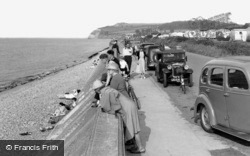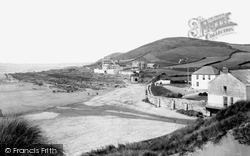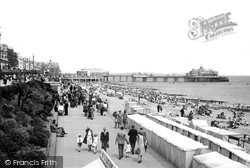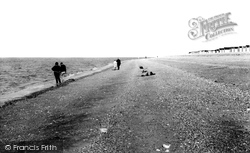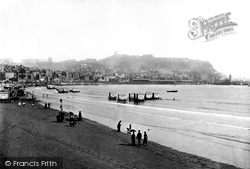Places
1 places found.
Those places high-lighted have photos. All locations may have maps, books and memories.
Photos
11 photos found. Showing results 681 to 11.
Maps
4 maps found.
Books
1 books found. Showing results 817 to 1.
Memories
1,362 memories found. Showing results 341 to 350.
Memory Of Runswick Bay
I was with a group of 8 friends who walked the Cleveland Way some years ago in June. Unfortunately, it was the wettest June for years! The plan that day was to walk from Runswick Bay to Whitby, some 8 miles. We had booked to ...Read more
A memory of Runswick Bay by
Best Years Of My Young Life.
I'm a Polzeath girl (grown woman now ). During the war I lived in Bryher, moved to Yoyo cottage then again to Tywardale. My nursery school was Tregear and primary school was Holiday House on the terrace. The playground was ...Read more
A memory of Polzeath
Radio 1's Tony Blackburn Comes To Polzeath
I have great memories of staying with my Aunt in Polzeath in the mid 1970's. Her house was high up and we used to walk down to the town and to the beach every day. One night in 1977 (late August) the Tony ...Read more
A memory of Polzeath by
Pease Families In America With Roots In Great Baddow
Over here in the United States of America most of the many thousands of Pease family members owe their existence to the brothers Robert & John Pease whose family line lived in ...Read more
A memory of Great Baddow by
Weekend Walks
As a young lad, living in Shepton Mallet, I used to eagerly await my older brother's visits at weekends. Saturdays would often involve a walk to Wells & a matinee at the Regal. If there wasn't a film on we wanted - or I was ...Read more
A memory of Shepton Mallet by
I Am Seeking Old Images Of Chapel St Leonards In The Early 1950s
My grandfather had a holiday home that was washed away in the 1953 floods, it was a very unsual property from what I have been told, but have never seen an image of it. ...Read more
A memory of Chapel St Leonards by
Happy Days At St Osyth
I lived with my family in Kingsbury NW9 and we used to holiday at St Osyth from 1960 -1965. Mum, Dad six children, plus Nan, Grandad and Auntie! The first year we had a caravan on the then magnificent beach, then a caravan ...Read more
A memory of St Osyth by
Maybe We Know Each Other
"...I used to play in the castle and what we thought were dungeons in the middle to late 1950s. It was our playground for many years. We went to the beach nearly every day summer or winter..." Maybe we know each other? ...Read more
A memory of Kirkcaldy by
Star Brush Factory
We lived in a council house adjacent to the Star Brush factory where my father worked for some years before we moved to Peppard. While our house was very modern by some standards, we had no electricity for some years, but we ...Read more
A memory of Stoke Row by
Selsey
I spent several holidays in a chalet with long verandah which was one of the first on the right just after a burnt out house and just before the caravans started in Mill Lane during the late 1940s and early 1950s. I remember getting off the ...Read more
A memory of Selsey by
Captions
1,130 captions found. Showing results 817 to 840.
Another delightful view of the Cat Nab area of Saltburn, with the distinctive profile of Huntcliffe beyond.
Amroth is a former coal mining village at the southerly end of the 186 mile-long Pembrokeshire Coast Path.
The Frith archive contains a number of these posed group pictures; the majority seem to have been taken during the 1890s.
A family walk down Magazine Lane Slipway onto the beach. This is close to the site of the magazines: ships entering the Mersey had to deposit any gunpowder there during their stay in port.
Anstey's Cove, with Redgate Beach hidden on the left, was a favourite bathing spot for Agatha Christie, who was born in Torquay in 1890.
Traditionally in the ownership of wealthy occupants, the private steps leading down to the beach still belong to these houses, except those on the extreme left.
The largest seaside town in West Sussex, Worthing began to grow as a fashionable resort towards the end of the 18th century.
This bustling scene looks east to the pier pavilion and the pier. The bucket and spades, bare feet, donkeys and wickerwork basket chairs recapture a vanished era.
A hugely expansive beach here means that it never fills up with holidaymakers in this popular resort and former fishing and trading port.
Posed on Goscar Rock on Tenby's North Beach, these women were paid for their work as models.
Skegness's most famous fairground ride was the Figure Eight, which was regarded as a worthy rival to Coney Island!
This is a fine view of the 'lost beach' of Gorleston, so named because after years of erosion it has been reduced to a fraction of the size we see here.
The sands, which are extensive enough to give the full benefit of ozone to those who avail themselves of its health-giving properties, form an excellent bathing-ground, entirely free from danger.
By the 1960s, more and more holiday visitors were arriving by car as well as by rail.
Hunstanton is unique for north Norfolk resort towns in that it looks west across the sea and not east.
Oh, we do like to be beside the seaside! These sunseekers are thoroughly enjoying a paddle in the Channel.
At the beginning of the last millennium, marauding Danes landed on these sandy Devon beaches and put the village of Exmouth to fire and sword.
The unmade road leads from the village to the beach. The sand-dunes are covered with marram grass, which helps knit them together and prevent erosion on this windy coast.
From the beginning of the 19th century most resorts had bathing machines in which bathers could change while being dragged into the sea, initially by horses and later by winches.
Blue Anchor is a hamlet in Carhampton parish, and it takes its name from the local inn. In 1874 it became a halt on the Taunton to Minehead railway line, now the privately run West Somerset Railway.
Once a sleepy Devon backwater, Croyde's beach and bay was discovered by holidaymakers in the 19th century. With two huge caravan parks, this area fills up dramatically in the short summer season.
The old 'birdcage' bandstand was replaced in 1934-35 by an altogether grander affair with a seating capacity of three thousand people.
Heacham has the distinctive flat beach of this part of the West Norfolk coast.
The bathing machines are doing good business. In the 1720s, it was the custom for those 'taking the waters' to bathe in the sea.
Places (1)
Photos (11)
Memories (1362)
Books (1)
Maps (4)

